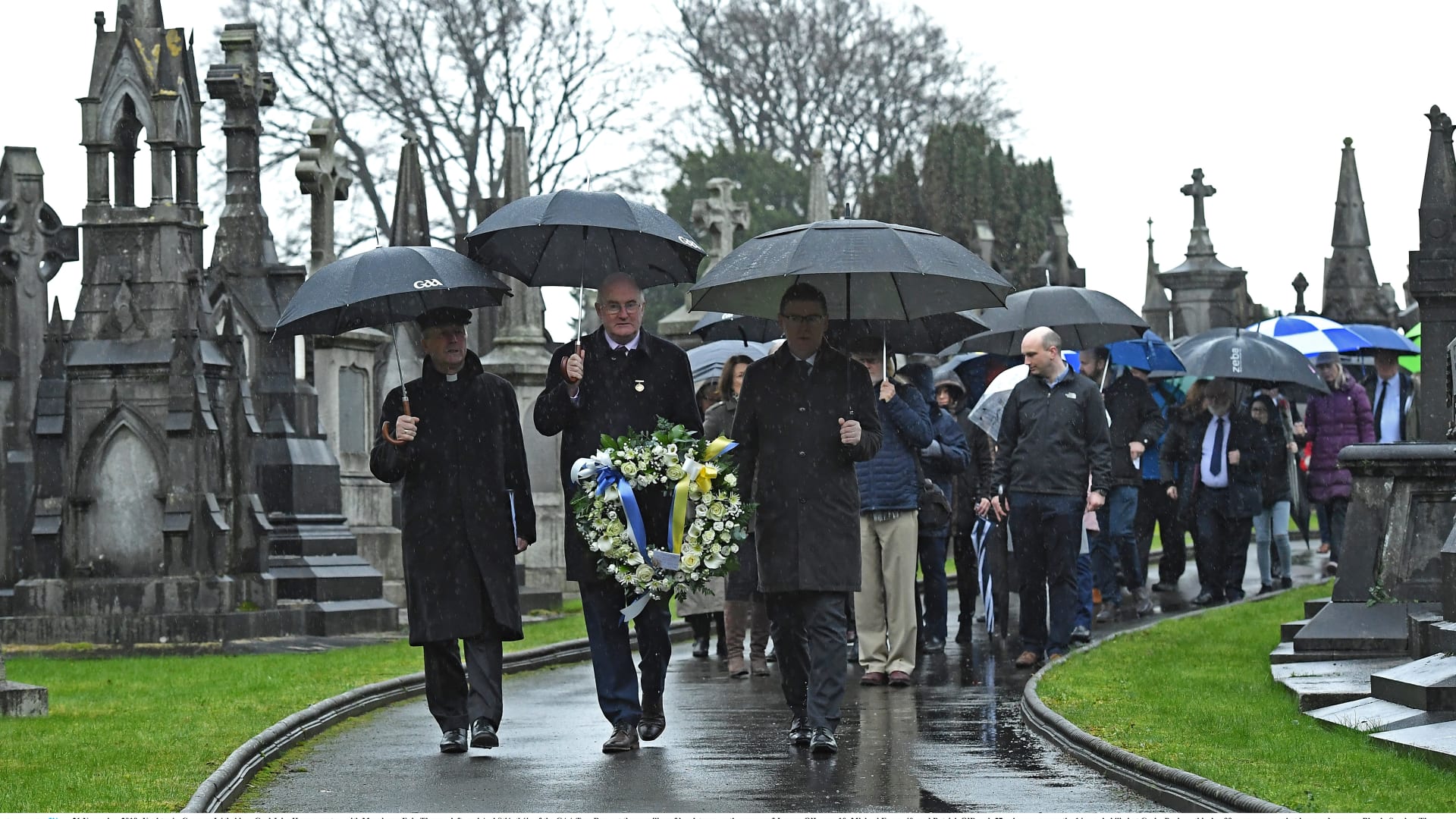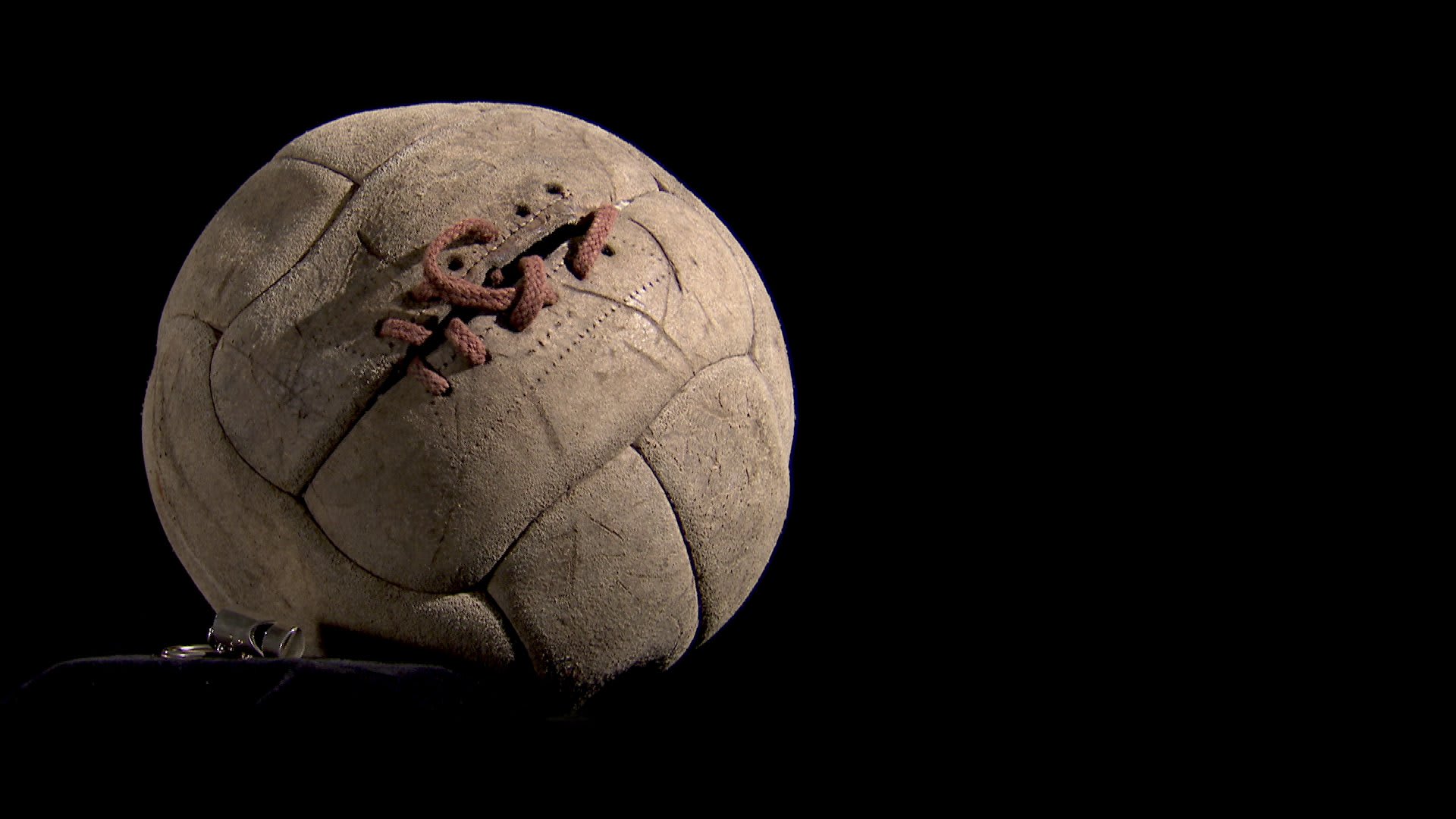THE REMEMBERED
B100dy Sunday
Fáilte chuig gaa.ie - suíomh oifigiúil CLG
IRA cells launch attacks across Dublin on the homes and lodging houses of alleged British spies and agents, killing 14 people.
News of the killings has reached the British administration at Dublin Castle. Plans are made to perform a search operation at Croke Park during the Dublin-Tipperary football game taking place that afternoon
The first game of the day at Croke Park begins, a replay of the Dublin intermediate football final between Erins Hope and Dunleary Commercials. Dunleary win their first ever title
Joseph Traynor leaves home in Ballymount, outside Dublin, cycling to Croke Park. He is later shot twice in the back at Croke Park
Tom Ryan leaves home in Stoneybatter for Croke Park. He dies whispering a prayer to the dying Tipperary player, Michael Hogan. James Burke leaves Windy Arbour for Croke Park. He is crushed in the stampede
James Teehan, bar owner, leaves Green Street in the city centre for Croke Park. He is crushed in the crowd trying to escape. Daniel Carroll leaves the pub in Drumcondra where he works. He is shot in the leg as he leaves the ground and dies two days later
The game between Tipperary and Dublin is delayed by 30 minutes due to the huge crowd still entering Croke Park. The attendance numbers around 15,000
The game begins. Soldiers arrive from Collinstown Aerodrome and take positions along Clonliffe Road to control the crowd as they exit the ground after the police searches inside Croke Park. An airplane overhead circles the pitch and fires off a flare
Over a dozen trucks containing RIC, Black and Tans and Auxiliary police arrive on the canal bridge outside Croke Park
The firing starts from the canal bridge. Eleven-year-old William Robinson, sitting in a tree watching the game, is the first victim. The shooting lasts 90 seconds and claims 14 lives.
The last spectators are searched and the Tipperary team corralled against the Railway wall at the Hill 60 end of the ground, are released by Major EL Mills, commanding officer of the Auxiliary force.


11 April - Home Rule Bill introduced in the House of Commons
31 January - Ulster Volunteers established
25 November - Irish Volunteers established
4 August - United Kingdom declared war on Germany
24 April - Easter Rising began in Dublin
3 February - Count Plunkett won the Roscommon North by-election, the first of a series of such victories for radical nationalist candidates
25 September - Thomas Ashe died on hunger strike at Mountjoy prison
26 October - Sinn Féin Ard Fheis took place in Dublin
27 October - Irish Volunteer national convention took place at Croke Park, Dublin
23 April - Nationalist opposition to the threat of conscription culminated in a general strike
4 August - Gaelic Sunday: the GAA organised a successful mass protest against a new legal obligation to acquire a permit to hold a match
14 December - The general election took place (in Ireland, Sinn Féin won 73 seats; Unionists 26; Irish Party 6)
21 January - First public meeting of Dáil Éireann took place at the Mansion House, Dublin; two RIC constables shot dead by the Irish Volunteers at Soloheadbeg, Tipperary
1 April - Eamon de Valera elected President of Dáil Éireann (this followed his escape from prison in February)
30 July - Detective Patrick Smyth of the DMP, G Division, ambushed by the IRA in Drumcondra (the first in a pattern of such shootings).
September - Dáil Loan appeal was launched by Michael Collins’s Department of Finance
12 September - Dáil Éireann was proclaimed as illegal
19 December - IRA attempted to assassinate Lord French, Lord Lieutenant
27 December - The recruitment of a new cohort of RIC constables was authorised: the origin of the ‘Black and Tans’
20 March - Tomás MacCurtain, Sinn Féin Lord Mayor of Cork, was shot by police
3-4 April - IRA destroyed RIC barracks across Ireland in a co-ordinated attack, marking an escalation in the conflict
14-16 April - 90 Irish Volunteer prisoners released from Mountjoy prison following a hunger strike (supported by a general strike)
9 August - The Restoration of Order in Ireland Act became law
20 September - Balbriggan, Co. Dublin, was sacked by crown forces following the killing of a local policeman (this was one of a growing number of such ‘reprisals’)
25 October - Terence MacSwiney died on hunger strike at Brixton prison (during the same month, Michael Fitzgerald and Joseph Murphy died on a parallel strike at Cork prison)